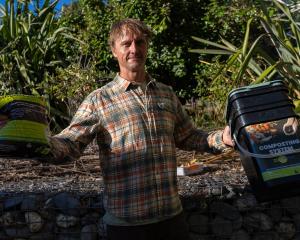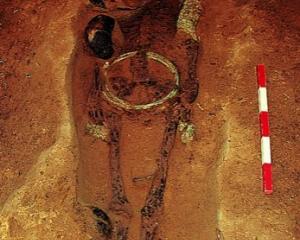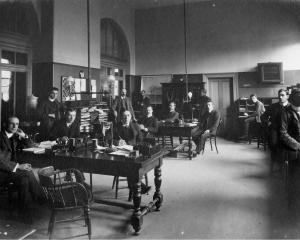Former Dunedin conservation biologist Ross Sinclair took a similar path to thousands of New Zealanders heading off on his "big OE", only he did not get much past Papua New Guinea. Twenty years on, he says he is only just getting a handle on the incredibly complicated and challenging country. Rebecca Fox talks to him about his work with the Wildlife Conservation Society in Papua New Guinea.
It is where he has spent most of the past 20 years, where he became enthralled with a family of birds, fell in love with his future wife, and is developing some cutting-edge approaches to sustainability in a developing country.
''I love where I work and live but it is not our home; we won't be there forever.''
That premise is at the base of his work - building local capacity so when he does ''go home'' the work can continue.
It also reflects the organisation he works for - the New York-based Wildlife Conservation Authority (WCS), which likes to commit terms of about 25 years to a programme.
Until two years ago, Mr Sinclair's work meant training young Papua New Guinea scientists.
Today, it is looking ahead to the future, working out ways their culture and connections to the land can be maintained while moving ahead with the development Papua New Guineans desire.
Mr Sinclair first arrived in Papua New Guinea in 1991 as a field assistant, with a mineral technology qualification from the Otago School of Mines and work including promoting recycling in Dunedin, building with earth in Northland and a stint as a Department of Conservation ranger, behind him.
''I walked into the forest in '91 and was immediately overwhelmed by the place and people.''
He then discovered megapodes, a family of birds of the same order as turkeys and commonly known as scrub fowl.
''I was excited. They're an incredible animal.''
The birds use environmental conditions to hatch their young rather than their own body heat, making them unique, he said.
Some lay their eggs into big ''compost''-like heaps while others on volcanic islands lay their eggs in hot sand.
Their yolk is over 60% of the egg, making them an amazing food source for people, although that had led to many of their species being wiped out, he said.
From 50 species there were now only 22 and 12 were threatened with extinction.
His research into these birds led him to the Solomons and Indonesia and back to New Zealand and the University of Otago to finish his masters degree in 2000.
In 2002 he was offered a full-time job in Papua New Guinea with the WCS.
''I failed in my OE. I took off from New Zealand and didn't get much past PNG.''
He met his future wife, Zoe Coulson-Sinclair, a New Zealand diplomat from Auckland who was managing NZAid for a New Zealand aid project in PNG, when he made a funding application.
''I didn't get the funding but I got the girl.''
When she was posted to Berlin, Dr Sinclair went with her to complete his PhD at the Free University.
They married in New Zealand in 2007.
Mrs Coulson-Sinclair is manager of Oxfam's highland project in PNG, although she is at present on maternity leave with their first child, 20-month-old Itzia.
The couple live in the Eastern Highland province town of Goroka, about 1800m above sea level where temperatures are in the high 20s during the day and in the mid-teens at night.
While there were a lot of negative perceptions about law and order in PNG, Goroka was a wonderful place to have a young family as ''everybody was great with kids'', he said.
''We've had wonderful experiences there with our daughter. It has been a great entree to interacting with local people.''
Some might think he was crazy to live in a country with such a turbulent reputation, but he said both of their jobs involved managing risk and as such they were risk adverse.
''The bottom line is, if I feel frightened in my bed at night, I'll not live there.''
Fascinated by the country where 97% of land ownership was customary and for its people ''land is life'', Dr Sinclair knew he had to work within those boundaries.
''There is a strong relationship between people and nature/culture so it's not possible to use Western models of conservation and preservation to lock these lands up in parks. In Melanesia they're not going to give up the land.''
The aim was to work with people so their use of the land could be sustainable and use the ''huge reservoir'' of knowledge they had developed over generations about nature.
Once they found out where their knowledge gaps were and how the changing world was impacting on them, WCS could help, he said.
Often people noticed that a food source such as cassowaries, a large flightless bird, an important source of nutrition, was getting scarce but didn't know why.
''We help identify the problem. Fill in the gap with Western scientific knowledge.
''It's not an academic exercise; it's very practical.''
However, behind all of this was rapid population growth, changing technology and the erosion of traditional knowledge and values - ''the impact of outsiders and outsiders beliefs''.
Dr Sinclair and his marine director were the only two expatriates on his team.The rest were young Papua New Guineans, trained and mentored by WCS in field techniques and sent to Western countries such as New Zealand for post-graduate training.
More recently, the team has refocused, with former WCS scientists setting up their own non-governmental organisation looking at pure science and training, allowing the WCS to get on with the core business of conservation, he said.
For the past 12 months that had meant diving into the untested world of forest carbon credits and REDD - reducing emissions from deforestation and forest degradation in developing countries, he said.
The basic idea was for tropical forest nations to be compensated for reducing carbon emissions from deforestation and forest degradation.
''For us, it is a wonderful opportunity for the long-term sustainable financing for forest conservation.''
Communities the WCS went into wanted basic services. For example, one community they entered had 30% infant mortality for their first year of life.
''It's offensive to go into these communities to talk about conservation without talking about what their vision for the community is.''
While WCS was not a development organisation and it was not their core business, REDD provided the opportunity for people to benefit without cutting down their forests, Dr Sinclair said.
''It's very complex, has come under a lot of criticism ... but people are desperate for development. This is an incredible opportunity. We want to try and make it work.''
On the other side, PNG had a history of very large industrial mining, oil and a new gas project projected to double in size the country's economy in 10 years.
''All these promise a broad base of economic development which is in reality delivered to only a small group of Papua New Guineans.''
The challenge with forest carbon credits was to ensure people who owned the forest were the main beneficiaries, he said.
''This is the issue we've been grappling with for the last year to 18 months to ensure there is a minimum opportunity for it to be captured by the elite.''
To do this, they had to work in ways consistent with the complicated nature of PNG social groups and clans and the animosity and distrust between those groups.
The country had 20% of the remaining rainforest and 85% of the remaining mountain forest in South East Asia.
''It's the opposite of New Zealand. Its ecosystems are still intact, which is what attracted me to work there in the first place.''
In PNG he could work on broader issues and challenges than his New Zealand contemporaries who were faced with ''overwhelming exotic species, shrinking habitats and dwindling numbers of just about every native animal'', Dr Sinclair said.
''We have our own challenges but we have a bit more time and space to get it right.''












